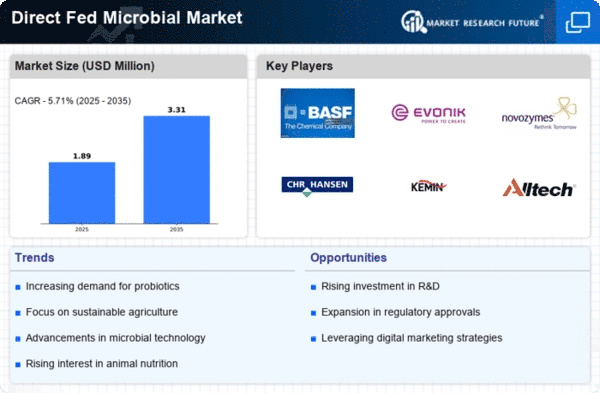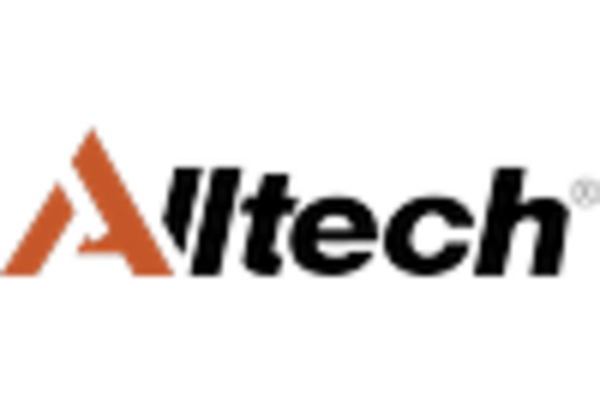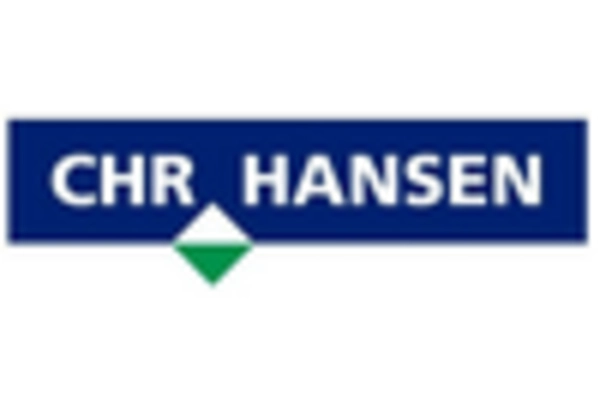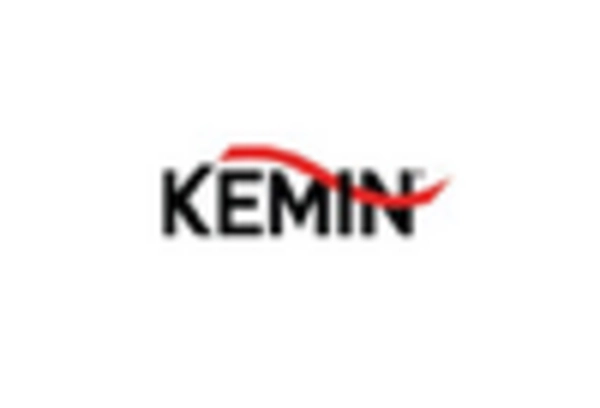Market Trends
Key Emerging Trends in the Direct Fed Microbial Market
To compete in animal nutrition, firms use strategic market share positioning in the rapidly developing Direct Fed Microbials (DFM) Market. Developing DFM products to improve cattle gut microbiota is crucial. Companies may meet livestock farmers' changing demands by developing formulations that increase digestive health, nutrient absorption, and animal performance. Through efficient animal health and productivity solutions, this product differentiator differentiates the firm in a congested industry and grows market share.
Market share positioning in the Direct Fed Microbials Market depends on branding. Companies establish powerful brands that promote DFM product safety, effectiveness, and advantages. A respected brand gives livestock producers confidence and brand loyalty, which helps keep and grow market share. Consumers concerned about animal agriculture's sustainability and ethics like DFMs' natural and science-backed qualities.
Strategic alliances are growing in the Direct Fed Microbials Market. To improve research and development and market reach, companies partner with research institutes, veterinary professionals, and feed makers. Collaboration helps build novel DFM solutions and optimize distribution networks. Companies gain market share and competitiveness by forging partnerships.
Direct Fed Microbials Market share positioning requires a customer-centric strategy. Understanding livestock farmers' requirements and difficulties helps firms adjust their goods and services. Providing DFM education, technical assistance, and practical advice builds customer loyalty and market share.
Direct Fed Microbials Market innovation and technological uptake are crucial. Research and development of enhanced DFM formulations with increased stability, effectiveness, and usability gives companies an edge. Precision agriculture and digital animal health monitoring improve efficiency and sustainability, strengthening a company's market position.
Direct Fed Microbials Market firms need effective marketing and communication strategies. They may establish livestock producers' confidence by clearly describing their DFM products' digestion, immunological support, and animal welfare advantages. Communicating product safety, mode of action, and environmental advantages boosts a company's reputation and market share.
Market share positioning in the Direct Fed Microbials Market requires constant observation of market changes and competitor activity. Companies can adjust rapidly and make educated choices by staying abreast of animal nutrition, regulatory, and technology advances. These information enable proactive market positioning strategy revisions to keep ahead of the competition.


















Leave a Comment